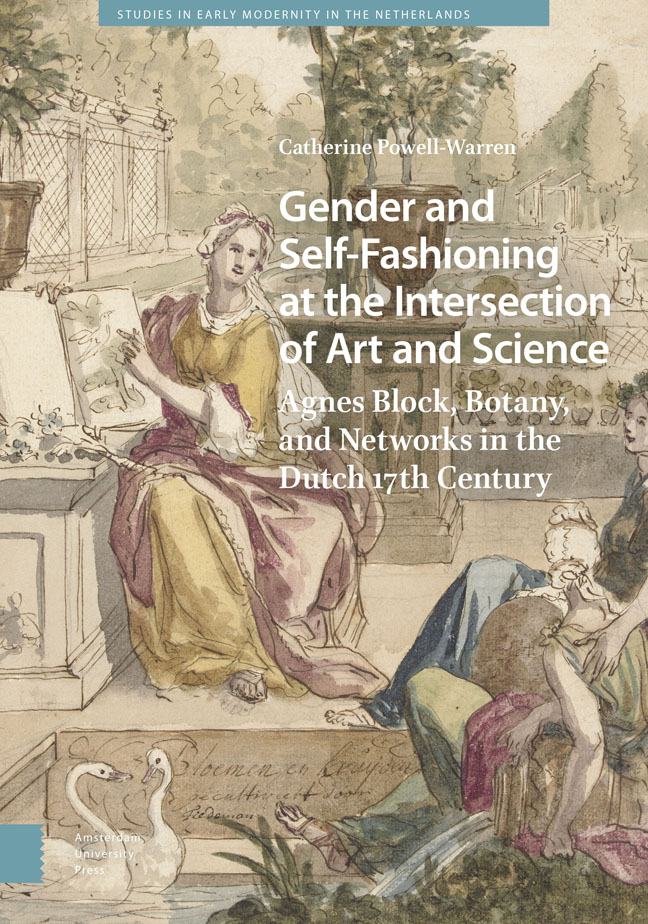 Gender and Self-Fashioning at the Intersection of Art and Science
Gender and Self-Fashioning at the Intersection of Art and Science Published online by Cambridge University Press: 20 February 2024
Abstract: This chapter places Agnes Block within the context of seventeenthcentury gender norms and expectations. The extent to which an early modern woman could participate in the economy, exercise power and agency in a public sphere, and engage in self-fashioning depended on several factors, not the least of which related to the men in their lives. Block was not unique, nor was she necessarily a “rare star among her sex.” Like other early modern Dutch urban women with wealth, social connections, curiosity, and intellectual acumen, her gender made it more complex at times to exercise agency and become part of the socio-cultural fabric, but did not prevent her from doing so.
Keywords: gender expectations; gender in popular culture; gender and public life; models of femininity; women’s work
Who are you, who writes to me thus? A maiden? I can scarcely credit that fact. Is it possible that these things—I will not even mention the reading and the talents, but the prudence and judgment—fall to the lot of that sex, in an age such as ours? Maiden, you have unsettled me: and I do not know whether to rejoice on behalf of our age, or grieve on behalf of my sex … I admire you.
– Justus Lipsius (1547–1606), Letter to Marie le Jars de Gournay, ca. 1588–1589Blessed art thou, Reader, if you are not of that sex to which one forbids everything of value, thereby depriving it of liberty; indeed, to which one also forbids almost all the virtues, removing from it public duties, responsibilities, and functions … with the object of setting up as its only happiness, its crowning and exclusive virtues, ignorance, servitude, and a capacity to play the fool if a woman likes that game. Blessed again are you, since you can be wise without offence, your masculinity allowing you—as much as one forbids these to women—every action of lofty purpose, every preeminent judgment, and every expression of subtle speculation.
– Marie le Jars de Gournay (1565–1645), The Ladies’ Complaint (1641)The French humanist Marie le Jars de Gournay was only too well aware of the limits imposed upon women in early modern France. She belonged to the informal network of women who participated in the Republic of Letters, as part of a subset of a “Republic of Women” of sorts.
To save this book to your Kindle, first ensure [email protected] is added to your Approved Personal Document E-mail List under your Personal Document Settings on the Manage Your Content and Devices page of your Amazon account. Then enter the ‘name’ part of your Kindle email address below. Find out more about saving to your Kindle.
Note you can select to save to either the @free.kindle.com or @kindle.com variations. ‘@free.kindle.com’ emails are free but can only be saved to your device when it is connected to wi-fi. ‘@kindle.com’ emails can be delivered even when you are not connected to wi-fi, but note that service fees apply.
Find out more about the Kindle Personal Document Service.
To save content items to your account, please confirm that you agree to abide by our usage policies. If this is the first time you use this feature, you will be asked to authorise Cambridge Core to connect with your account. Find out more about saving content to Dropbox.
To save content items to your account, please confirm that you agree to abide by our usage policies. If this is the first time you use this feature, you will be asked to authorise Cambridge Core to connect with your account. Find out more about saving content to Google Drive.